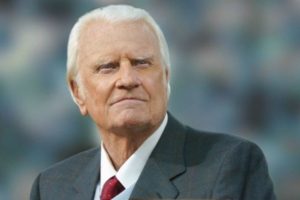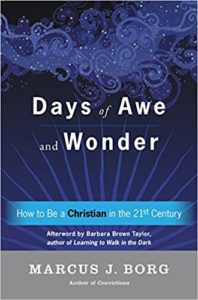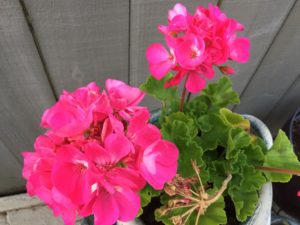 I think I’ve discussed community before on this blog, sometime in its six or seven years of existence. There have been times, I’d have to admit, when I was a little hazy myself on the importance of community, especially in relation to the issue of spirituality. It’s a temptation for an introvert to focus her spirituality into avenues that are not dependent on the presence or participation of other people.
I think I’ve discussed community before on this blog, sometime in its six or seven years of existence. There have been times, I’d have to admit, when I was a little hazy myself on the importance of community, especially in relation to the issue of spirituality. It’s a temptation for an introvert to focus her spirituality into avenues that are not dependent on the presence or participation of other people.
So, I was intrigued by how much my attention was drawn to, and has returned to, a paragraph in Wendell Berry’s novel Hannah Coulter.
The paragraph is presented as the public comment of a character named Burley Coulter (one of my favorite characters in the story), who is known for referring to residents of the village of Port William, Kentucky, as all being part of a membership. The paragraph reads as follows:
“Oh, yes, brothers and sisters, we are members one of another. The difference, beloved, ain’t in who is and who’s not, but in who knows it and who don’t. Oh, my friends, there ain’t no nonmembers, living nor dead nor yet to come. Do you know it? Or do you don’t? A man is a member of a woman and a worm. A woman is a member of a man and a mole. Oh, beloved, it’s all one piece of work.”
We’ve all heard expressions of similar concepts: “We are all one.” “We’re all in this together.” “No man is an island.” But somehow Burley’s statement about membership strikes a chord that the others don’t quite manage. The difference, for me, is between anonymity and known identity. Burley’s statement eliminates anonymity in favor of a sense of belonging. And with belonging goes a natural, mutual responsibility for the others in the membership. Even an introvert likes to know where she belongs.
So, what does that have to do with “everyday spirituality”? What comes immediately to mind is the passage in Isaiah 54, recorded in The Message this way: “Clear lots of ground for your tents! Make your tents large. Spread out! Think big! Use plenty of rope, drive the tent pegs deep. You’re going to need lots of elbow room for your growing family….” [This passage of Scripture also figured in the September 22, 2016, post.]
“Your growing family” is another phrase for your membership. The more deeply you go into your spiritual self, the more your spiritual world can expand the coverage of its tent to recognize others as part of your membership.
As Burley would say: Do you recognize your membership or do you don’t?



 Today the world lost a spiritual giant whose ministry was shared around the world in some 90 countries, and here in the United States with huge crowds of people and with every US President from Harry Truman to George W. Bush.
Today the world lost a spiritual giant whose ministry was shared around the world in some 90 countries, and here in the United States with huge crowds of people and with every US President from Harry Truman to George W. Bush.



 I think I’ve discussed community before on this blog, sometime in its six or seven years of existence. There have been times, I’d have to admit, when I was a little hazy myself on the importance of community, especially in relation to the issue of spirituality. It’s a temptation for an introvert to focus her spirituality into avenues that are not dependent on the presence or participation of other people.
I think I’ve discussed community before on this blog, sometime in its six or seven years of existence. There have been times, I’d have to admit, when I was a little hazy myself on the importance of community, especially in relation to the issue of spirituality. It’s a temptation for an introvert to focus her spirituality into avenues that are not dependent on the presence or participation of other people. Today is my spiritual direction session — a once-monthly meeting with my spiritual director. It is an opportunity to take an hour to reflect purposefully, with the aid of another, on my ongoing relationship with the Divine. We might talk about where I have seen God’s touch in my life or where there appears to be (or needs to be) guidance concerning an issue now or going forward. My spiritual director has known me for many years, so she is able to draw connections with past conversations and past events in my life. Because she is also a widow, she has valuable insights into the feelings and movements of the grief process.
Today is my spiritual direction session — a once-monthly meeting with my spiritual director. It is an opportunity to take an hour to reflect purposefully, with the aid of another, on my ongoing relationship with the Divine. We might talk about where I have seen God’s touch in my life or where there appears to be (or needs to be) guidance concerning an issue now or going forward. My spiritual director has known me for many years, so she is able to draw connections with past conversations and past events in my life. Because she is also a widow, she has valuable insights into the feelings and movements of the grief process. You’ve surely heard the Biblical instruction “give thanks in all circumstances for this is the will of God for you.” It is Verse 18 of I Thessalonians 5. You certainly heard it if you were in a Christian church on Thanksgiving Sunday. Most people who point to this verse emphasize that we are instructed to give thanks IN all things, not FOR all things, indicating a prevailing attitude of trust and gratitude that we should maintain no matter what is going on in our lives.
You’ve surely heard the Biblical instruction “give thanks in all circumstances for this is the will of God for you.” It is Verse 18 of I Thessalonians 5. You certainly heard it if you were in a Christian church on Thanksgiving Sunday. Most people who point to this verse emphasize that we are instructed to give thanks IN all things, not FOR all things, indicating a prevailing attitude of trust and gratitude that we should maintain no matter what is going on in our lives. A friend sat down beside me Sunday before church and told me that she misses me. I knew, and so did she, that I haven’t missed any Sunday services. She meant something else, so I explained that it feels to me as though a buffer of gauze exists between me and the world. It’s that buffer that she senses. On Sunday it was 15 months to the day since my partner died. This gauze buffer is the current state of grief for me. My friend seemed to think it might be two years or more, so we surprised each other.
A friend sat down beside me Sunday before church and told me that she misses me. I knew, and so did she, that I haven’t missed any Sunday services. She meant something else, so I explained that it feels to me as though a buffer of gauze exists between me and the world. It’s that buffer that she senses. On Sunday it was 15 months to the day since my partner died. This gauze buffer is the current state of grief for me. My friend seemed to think it might be two years or more, so we surprised each other. Marcus Borg’s
Marcus Borg’s 
 It may be impossible to think of manna without thinking of the story in Exodus of God providing daily provision to the Israelites in the wilderness. Manna was that strange substance that fed them and all they had to do was pick it up off the ground. But each person had a daily portion, to be gathered on the day of its use. The only day of the week they could gather a double portion without the oversupply “going bad” was in preparation for the Sabbath.
It may be impossible to think of manna without thinking of the story in Exodus of God providing daily provision to the Israelites in the wilderness. Manna was that strange substance that fed them and all they had to do was pick it up off the ground. But each person had a daily portion, to be gathered on the day of its use. The only day of the week they could gather a double portion without the oversupply “going bad” was in preparation for the Sabbath.
